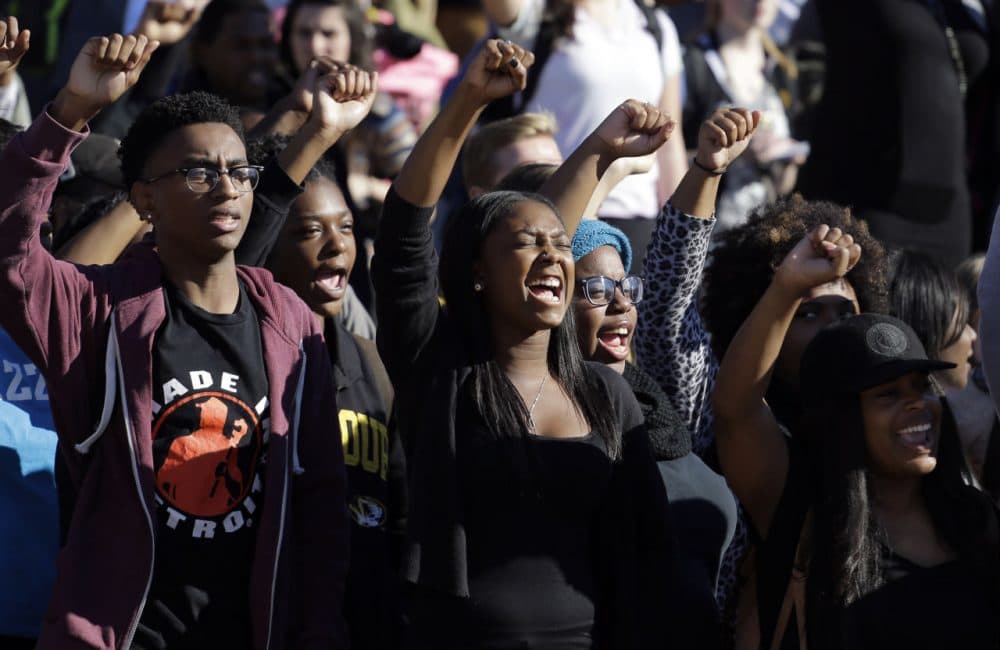Advertisement
Race Issues On College Campuses: What's A Proportional Response?
Resume
Campuses around the country are in turmoil over questions about race, "safe spaces" and free speech. Can we reach consensus on what events are substantial enough to warrant action? How can college campuses be places that encourage dialogue while also respecting cultural differences?
Guests
Jabari Asim, associate professor of writing, literature and publishing at Emerson College. He’s also executive editor of The Crisis, the NAACP’s flagship journal of politics, ideas and culture. He tweets @jabariasim.
Tricia Rose, professor and director of Brown University’s Center for the Study of Race and Ethnicity in America. She tweets @ProfTriciaRose.
More
Harper's Magazine: Lifting As We Climb
- "Is it wrong for black parents to deliver to their children the sort of talks that my parents gave to me? The demand that young blacks pursue certain actions and avoid others in response to racism is sometimes understood to implicitly fault those young blacks who decline (or fail) to follow such recommendations. Just as complaining about the 'suggestive' attire or demeanor of women who are raped is blaming the victim, many believe it is blaming the victim to complain about the 'menacing' (or merely 'too black') attire or demeanor of African-American men who are harassed, assaulted, or killed. The clothing a woman wears is irrelevant to the culpability of a rapist, and so, too, should the appearance of a young black man in a hoodie be irrelevant to the culpability of anyone who inflicts violence upon him. This is true as far as it goes, but it misses the point."
The New Yorker: Race And The Free-Speech Diversion
- "Eight months ago, fraternity members at the University of Oklahoma were filmed singing an ode to lynching. These are not abstractions. And this is where the arguments about the freedom of speech become most tone deaf. The freedom to offend the powerful is not equivalent to the freedom to bully the relatively disempowered. The enlightenment principles that undergird free speech also prescribed that the natural limits of one’s liberty lie at the precise point at which it begins to impose upon the liberty of another."
The Boston Globe: ‘Safe Space’ Doesn’t Exist, But Student Protesters Can Declare Victory Anyway
- "When the biggest complaint that student protesters at Yale can muster is that the university brass has failed to create 'safe space' — something that doesn’t exist on this planet — they’re backhandedly showing how much else administrators have done to promote the cause of diversity."
The Atlantic: Campus Activists Weaponize ‘Safe Space’
- "At the University of Missouri, student activists succeeded this week in forcing the resignation of President Timothy M. Wolfe, charging that he has not done enough to address persistent racism on campus. Tim Tai, a University of Missouri student, got a freelance assignment from ESPN to photograph the reaction of victorious activists at the tent city they set up in a public area of campus. As a matter of law, he had an indisputable First Amendment right to photograph events transpiring outdoors on public property. But student activists did not want their tent city or the people in it photographed, and forcibly prevented him from taking pictures."
The Fire: Email From Erika Christakis
- "'Dressing Yourselves,' email to Silliman College (Yale) Students on Halloween Costumes"
This segment aired on November 12, 2015.